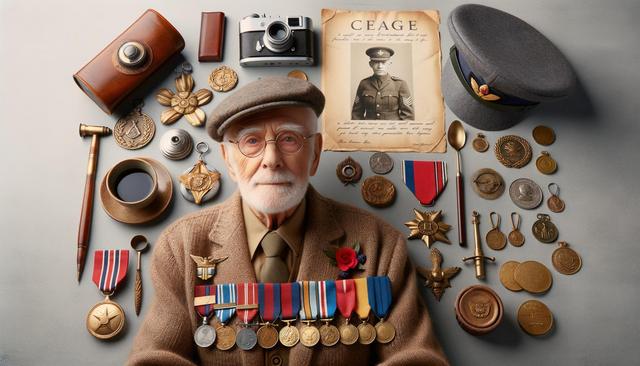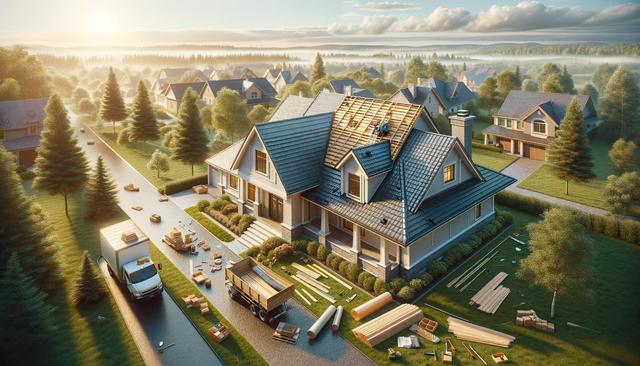
Honoring Senior Veterans: A Legacy of Service and Support
A Lifetime of Service
Senior veterans have lived through defining moments of history, serving in conflicts that shaped the modern world. Their experiences span from World War II to more recent military engagements, and each veteran carries a unique story of courage and perseverance. As these individuals age, recognizing their service becomes not just a matter of national pride, but a necessary commitment to preserving and honoring their legacy. Many senior veterans have transitioned from active duty to civilian life with grace, taking on new roles within their communities and continuing to serve in different capacities.
However, the transition to later life can also bring about new challenges. Health issues, financial concerns, and social isolation are common among aging veterans. Addressing these concerns requires a holistic understanding of their unique needs, especially those stemming from military service such as PTSD, long-term physical injuries, or exposure to combat-related trauma. Ensuring that these veterans are supported involves a network of public, private, and nonprofit efforts that focus on veteran care and advocacy.
Healthcare and Benefits
Access to quality healthcare is a top priority for senior veterans. Many rely on veteran-specific health services to manage chronic conditions or injuries sustained during service. The Department of Veterans Affairs offers a wide range of services, but navigating the system can be complex. Assistance with registration, eligibility verification, and understanding benefit options can significantly improve the experience for senior veterans.
Key health services include:
- Primary and specialized medical care
- Mental health support and counseling
- Rehabilitation and physical therapy
- Home-based and long-term care options
It’s also important to consider the role of caregivers, many of whom are family members. These individuals provide critical daily support and often need training, respite care, and financial assistance themselves. Programs that support both the veteran and their caregivers contribute to a healthier, more sustainable living environment.
Housing and Independent Living
Aging in place is a preferred choice for many senior veterans, but it requires access to safe, accessible, and affordable housing. Modifying existing homes to accommodate mobility limitations is one solution, while others may benefit from moving into assisted living communities or veteran-specific housing facilities. These housing solutions not only provide physical comfort but also foster a sense of belonging and community among those who share similar life experiences.
Some supportive housing features include:
- Wheelchair-accessible modifications
- Emergency response systems
- On-site medical support
- Community engagement programs
There are also grants and financial assistance programs available to help senior veterans afford necessary home modifications or transitions to assisted living. Educating veterans and their families about these resources is crucial to ensuring they receive the support needed to maintain independence and dignity.
Social Connection and Community Engagement
Social isolation is a significant concern for many senior veterans, especially those living alone or in rural areas. A strong social network can dramatically improve emotional well-being and overall quality of life. Community centers, veterans’ organizations, and digital platforms offer opportunities for veterans to reconnect and share experiences with others who understand their background.
Ways to encourage engagement include:
- Veteran support groups and peer mentoring
- Participation in events and commemorations
- Volunteering and community service opportunities
- Technology training to stay connected online
These programs not only reduce feelings of loneliness but also empower veterans to continue contributing to society. Their stories and perspectives hold immense value, and engaging with younger generations through storytelling or mentorship can be particularly rewarding for both parties.
Honoring Their Legacy
Recognizing the contributions of senior veterans goes beyond individual support—it’s about fostering a culture that values service and sacrifice. Public recognition through events, memorials, and educational initiatives ensures that their stories are preserved for future generations. Schools, museums, and local governments can play a vital role in integrating veteran history into public consciousness.
In addition to public honors, personal acknowledgments from family, friends, and communities can be deeply meaningful. Celebrations of service milestones, oral history projects, and participation in veteran-led initiatives help affirm the lasting impact of their contributions. By bridging generational gaps and fostering intergenerational respect, we create a society where service is honored and remembered.
Ultimately, supporting senior veterans is not just a gesture of gratitude—it’s a responsibility. Ensuring that they live with dignity, access to care, and a sense of community is a reflection of national values and collective respect for those who have served.


